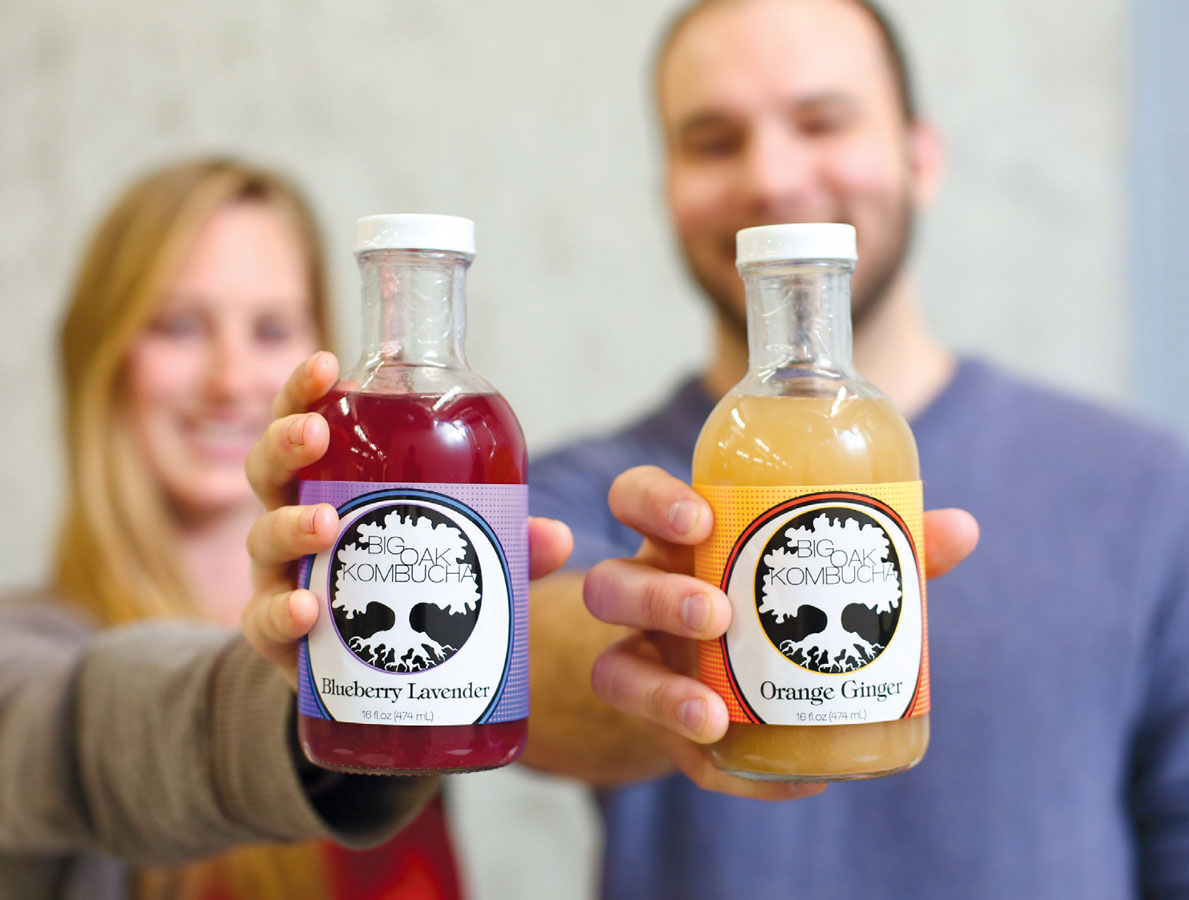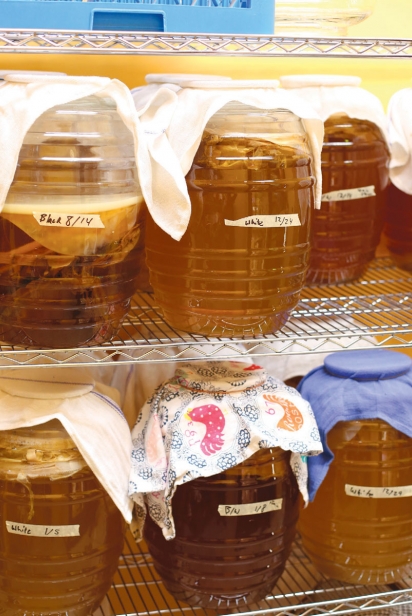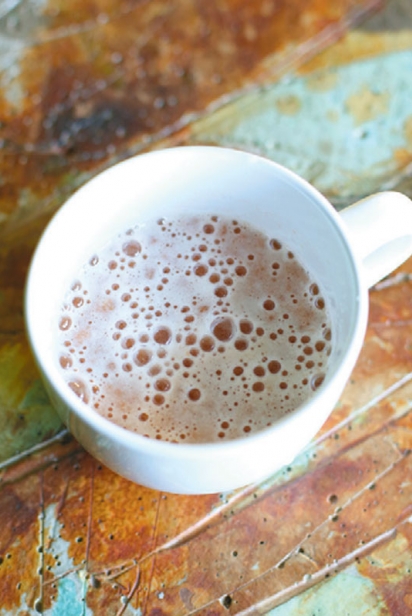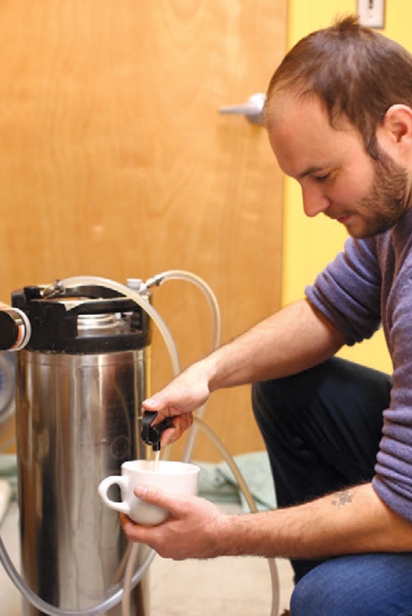Big Oak Kombucha
That Drink Your Dad Can’t Pronounce
My father calls the stuff kahboocha, and a friend’s dad says kobucho. How did that Shakespeare quote go? A kombucha by any other name would still be a kombucha? Whatever you call it, know this: kombucha is packed full of probiotic goodness that aids digestion, boosts your immune system, detoxifies, and raises energy levels. Throw in the added value of supporting a local Oklahoma City producer—Big Oak Kombucha—and you’ve got one special drink.
If you’re unfamiliar, kombucha is a fermented tea that has been made for thousands of years, all around the world, using water, tea, sugar, and a SCOBY. SCOBY is short for symbiotic colony of bacteria and yeast, which grows into a gelatinous disc-shape (also called a zoogleal mat—fun words!) and looks rather otherworldly. The SCOBY is referred to as “the Mother,” because every time it is brewed, the cultures regenerate and create daughter SCOBYs, which can be peeled off from the Mother and used to make future batches of kombucha. The bacteria and yeast in the SCOBY perform fermentation by using the added sugar and caffeine from the tea as fuel.
Matthew Zitterkob, owner and founder of Big Oak Kombucha, has been brewing the stuff for ten years, using the same strain of SCOBY that he’s had since the beginning. “I’ve been given other strains, too,” says Zitterkob, “and have added to mine so that it’s really biodiverse.” He started with wild fermentation—using naturally occurring bacteria and yeast—so his kombucha is about as local as one can get.
Mary Donnelly, who handles Big Oak’s marketing and sales, says people (and even local health departments) are often wary of fermented products. “When you don’t know what fermentation is,” she says, “it might look like you’re just letting something rot. But, it’s a clean, scientific, and dedicated process. A lot goes into making it and it’s good for you.”
It also tastes good—think tangy vinegar meets the sweetness of sugar meets fizzy soda. Big Oak Kombucha produces the drink in many flavors including blueberry lavender, orange ginger, white tea, grapefruit juniper, cherry lime, and prickly pear lime ginger. Kombucha on tap can be had at Saints Pub and The Red Cup, where the company sells about fifteen to twenty gallons per week. “Red Cup is our testing ground,” says Zitterkob. “I try out new flavors in the kegs there first. It’s a popular spot for kombucha.” At Saints, the bartenders have been creating kombucha cocktails. Bottles of Big Oak can be found at Urban Agrarian, Hoboken Coffee, Fit Pig, and Elemental Coffee.
Zitterkob handed me a bottle of white tea kombucha right after I walked through his door on NE 51st Street. He shares a space with Leap Coffee Roasters, where he also bottles his product. His white tea version is a fresh, crisp, mild-tasting ‘bucha that has no added flavors. “It’s our original-style kombucha,” he says. Zitterkob was getting ready to bottle the more adventuresome Prickly Pear Lime Ginger flavor, made with Oklahoma-harvested prickly pears that he picks himself at a spot near the Wichitas.
“I have my spot,” he says. “There are more than you could ever imagine.” As he shows me the rest of the warehouse space and kombucha-making room, lined with shelves of 5-gallon jars of ‘buch, I imagine purple prickly pear fields and Matt in a veritable local-produce heaven. Zitterkob likes to get as much locally-sourced produce as possible for his kombucha, noting that the availability and seasonality of produce somewhat determines the flavors he create.
He says he has to explain the drink less and less to people, and perhaps next they will start teaching people how to make it. “It’s easy,” Donnelly says, “and you can do it at home.” (She gave me two bottles of her own homemade kombucha as I left: strawberry fennel flavor.) To that end, the two are working on creating educational sessions with other businesses that already do workshops, such as Blue Doors at Tenkiller, whose mission is “connect others with nature, each other, and to share the importance of sustainability.”
Looking to the future, Matt and Mary would love to work with local artists to create new labels, and a local brewery to make a collaborative product—perhaps a sour, wild-fermented beer. “I’m working on kombucha vinegar now, too,” he says. “And we’re looking for as many outlets to expand into as possible.” As Zitterkob creates new and exciting flavors and the drink continues to grow in popularity, that should be no problem for Big Oak Kombucha. Do your gut a favor: head to a local distributor and try it out.







